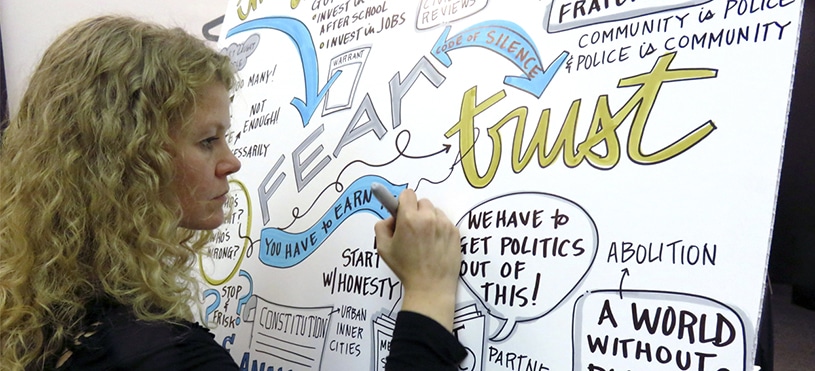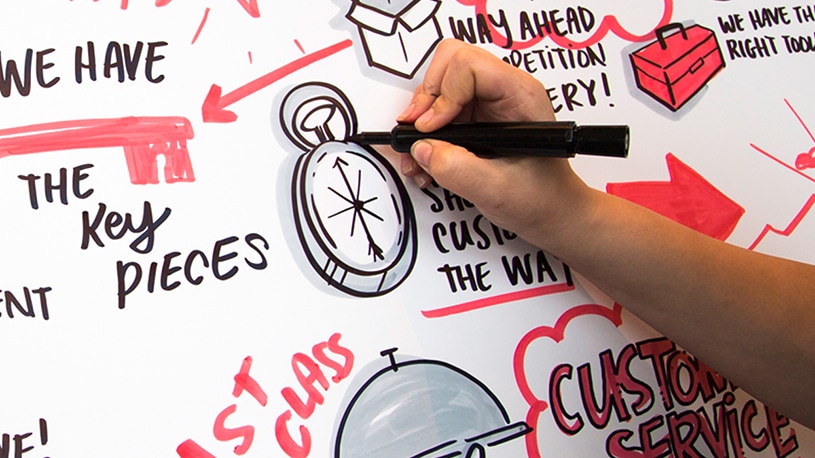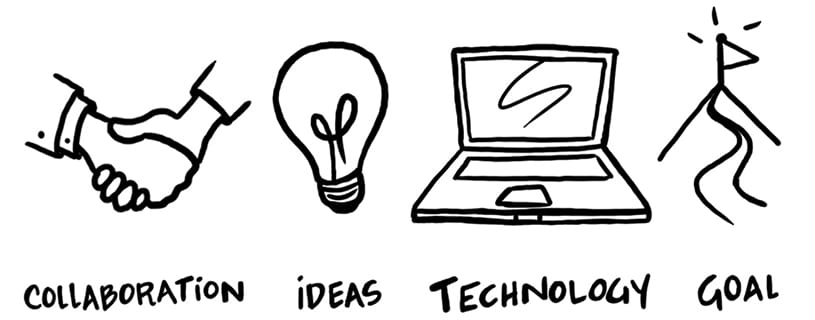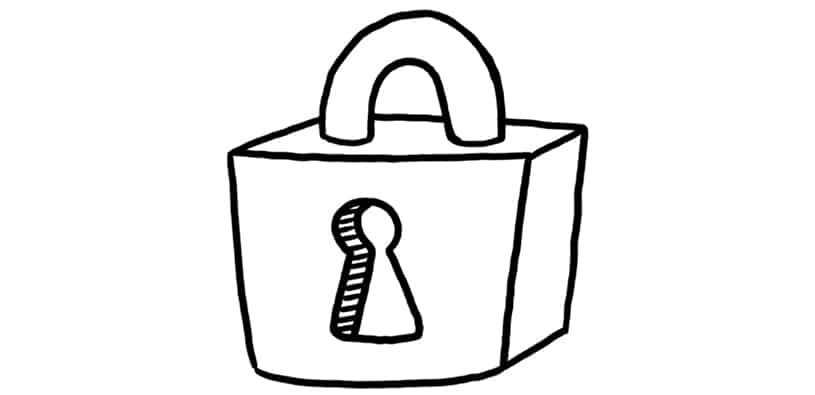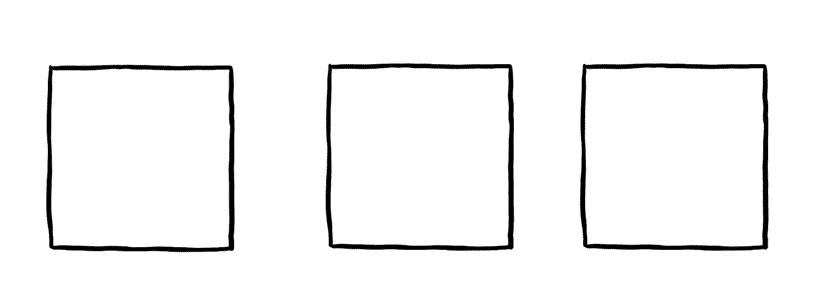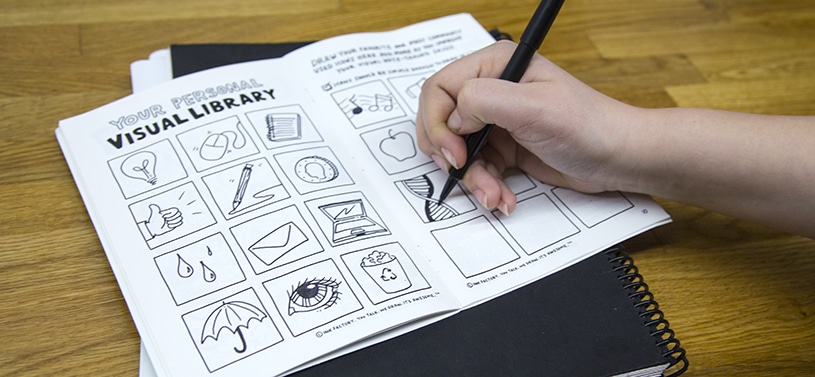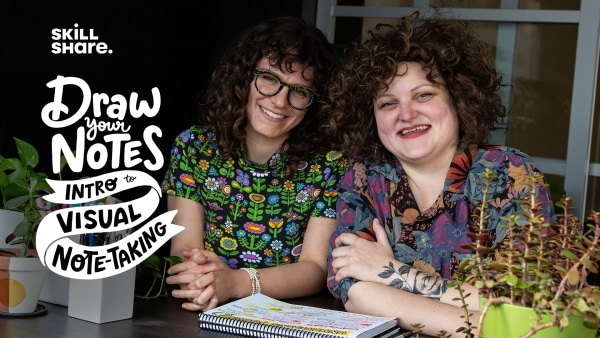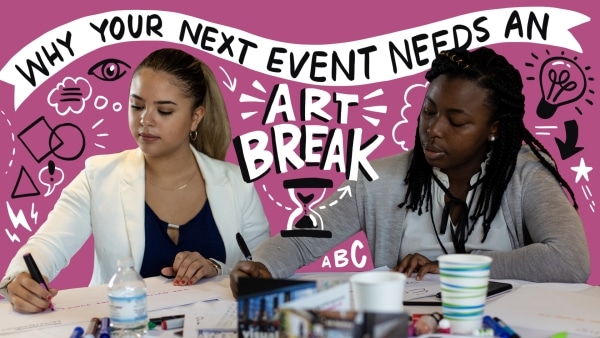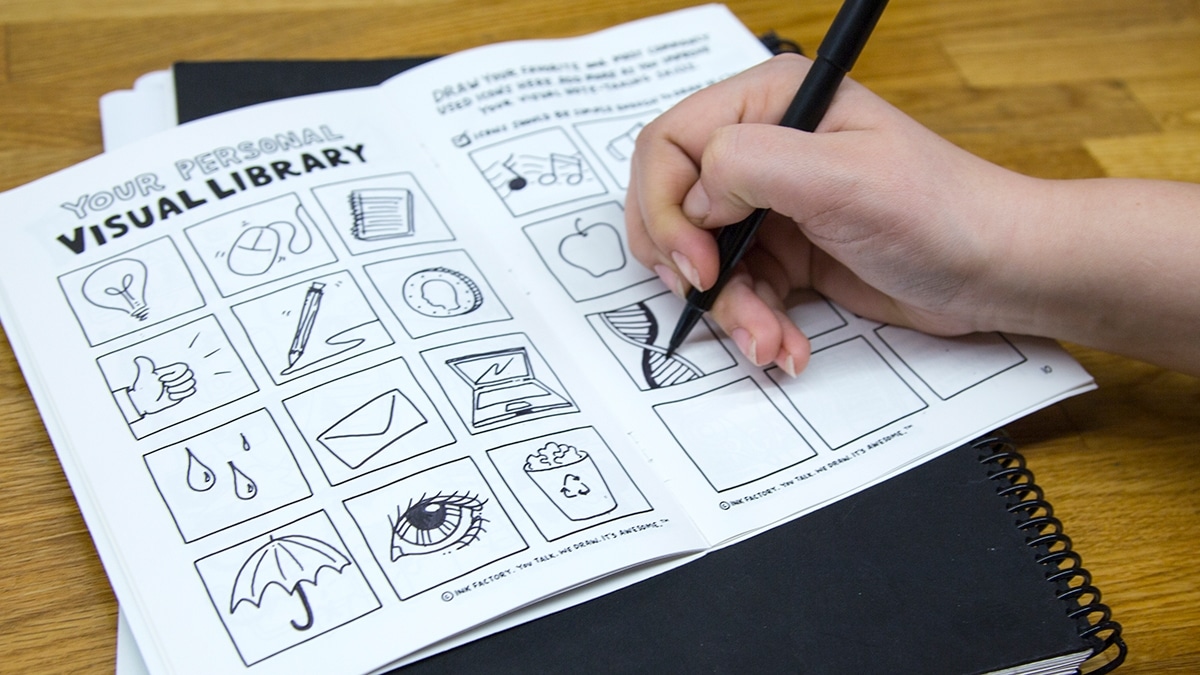
Creating a Library for Visual Note-Taking – Part One
Visual note-taking is the skill of organizing and capturing information through hand drawn images and text. And the benefits to visual note-taking are endless: a study found that a group who doodled during a monitoring task recalled 29 percent more information than the non-doodlers (Andrade, 2009). Drawing while listening helps you to stay engaged and remember more information, improves your listening skills, and enhances your ability to organize and connect ideas.
Creating a visual library is the first tool in your kit to become a visual note-taker. No matter what your artistic skill level may be, you can break down the visuals we use on a daily basis into simple, easy to draw shapes. Once you have these techniques to take visual notes in your back pocket, you will be able to implement them to aid in problem-solving, brainstorming or just to elevate your note-taking experience.
Visuals act as metaphors for complex ideas.
We use visuals to create bookmarks in the brain. When you associate a visual with an idea, you can process information more quickly. Icons can be used to represent multiple ideas, and you can also combine visuals together to enhance content even more.
Words and concepts we hear on a daily basis include things like collaboration, ideas, technology and goal.
See the lock below? Draw it in your sketchbook, then annotate it with possible ideas that lock could represent.
Thinking of words and ideas as visual icons is the first step towards becoming a successful visual note-taker. Even if the rest of your notes are linear, you can annotate them with visuals to call attention to important information.
Keep icons simple
Visuals do not have to be complex in order to get key points across. Most icons start with a basic shape, such as a square or circle. From there, they can be transformed into endless possibilities. If you don’t believe us, you can try it for yourself! Draw the same shape six times and turn each one into something different. Remember that you should be able to draw your icon in less than 2 minutes.
Create a reference guide
There are icons that everyone should keep in their collection, such as word bubbles, magnifying glasses, or keys. These icons transcend industries and can represent a vast amount of ideas.
Practice
Practice! Practice! Practice! We can’t say it enough! The more time that you commit to drawing these icons, the faster they’ll be to implement during the note-taking process. Find a clean and quick way to draw each visual and do it until it becomes second nature. It may not be easy, but the more you draw, the quicker you’ll improve! We recommend listening to podcasts or historical speeches for content to practice visual note-taking.
This is part one in a series of how you can start taking visual notes – be you an architect, designer, educator, or CEO. Follow us on Facebook, Instagram, Twitter or LinkedIn to be notified when a new post comes out!
